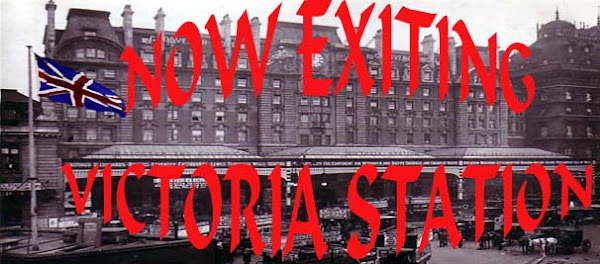The only knowledge and experience I have of Eliot is his general disposition and his essays. I confess that I had conceived of a person so detestable in nature that while I respected his body of work and contribution to literature, I had all but given up on actually liking him. I’m stubborn, but not foolish. Eliot’s poetry is astounding. Every word resonated like a drum beat in a tin room. For this post, I’m going to focus on what struck me most about Prufrock as well as some dissection of the Preludes and a short foray into etymology, just for the sheer joy of it.
The one word that hovered in my mind all throughout reading these poems was immediacy. I will get to the imagery in a moment, but in reference to this point, I feel that the use of images of the city instead of nature (as the dreaded Romantics employed) grounds Eliot’s work in the present. Rather than allowing it to float in the timeless ethereal, it is situated in the here and now. This immediacy is also aided by directly addressing the reader (or an otherwise unnamed second person) in line 31 of Prufrock: “Time for you and time for me”
The imagery I mentioned is all important when making a distinction between the modernist poetry of Eliot and the work that came before him. He works from a different standard of imagery, eschewing images of the beautiful, unquantifiable and unexperiencable an instead embracing the vulgar (in the original sense of the world vulgar, meaning relating to the common people). Images such as “like a patient etherized upon a table (ll. 3) and “One night cheap hotels” (ll. 6) are images for a new generation of people. They speak to a quality and an understanding that in years before Eliot, people would deny even admitting they possessed. Modernist indeed.
Prufrock speaks to the lingering doubt in everyone. It isn’t about some magnificent concept. It doesn’t refer to some great “out there,” it is real, it is immediate and it is universal. THAT is what makes it great. As much as Wordsworth may have talked a big talk about poetry for every man, his words were only for those who had the luxury to contemplate them. Eliot may have been an elitist jerk, but his words can speak to feelings in everyone.
Of all the other poems on the list for this week, none spoke to me as much as Preludes did. Again, the word that distinguishes the work is immediacy. The detail is such that the reader is placed in the location of the poem. Eliot sets us to feel the wind blow discarded newspapers past our feet and into the road. We are there. The binary I would posit, it there is one, is immediacy versus reflection.
A short close reading of the poem shows that the whole nature of city life is condensed into a few lines. Of particular interest is the word “masquerade” (ll. 19) which, when used to describe the everyday comings and goings of a city of people suggests a very cynical worldview. By suggesting that our public selves are not who we are, Eliot wordlessly raises the question of ‘who are the people behind the masks?’ Who are the people who are “raising dingy shades/In a thousand furnished rooms” (ll. 22-23) before they raise the shades? Clearly, the shades are drawn on our lives as well as our homes and we are lead to wonder what these thousands of people do behind closed doors. Who are they? Who are we? For if we do not know them, they do not know us either…
In the third stanza it’s important to note that Eliot switches to the second person to address the reader or else a specific unknown person. When implying that in sleep and in dozing the person contemplated who they were, reflected upon the life behind the mask, Eliot uses the word “sordid” (ll.27). With conflicting images, I began to wonder whether Eliot viewed the elaborate deception of the human dance as devious or necessary. We are dishonest if we hide ourselves, promiscuous if we show ourselves. All of human interaction is a war between these two sentiments.
I also had to add one more reflection which struck me. The word “Pervigilium” is both incredibly distinct and incredibly obscure. When I first saw it I wondered whether Eliot himself made it up I looked in dictionaries and thesauruses to no avail. Finally, online, I found it in a medical dictionary, which is interesting. It means wakefulness or sleeplessness. The Pervigilium was also a Roman nocturnal festival. Both uses fit with Eliot’s purpose. In trying to study the word myself I first focused on the root “perv” is, as we use it, the base off two modern words – perversion and pervasion, also linked with Eliot’s concept. Knowing now, as I do, the medical definition and the historical provenance, I can see that the English word “vigil” is clearly a descendant of Pervigilium as well. The word has a great deal to recommend to the interpretation of Prufrock’s Pervigilium. Eliot obviously chose it with great care.
Monday, February 4, 2008
Subscribe to:
Post Comments (Atom)



No comments:
Post a Comment